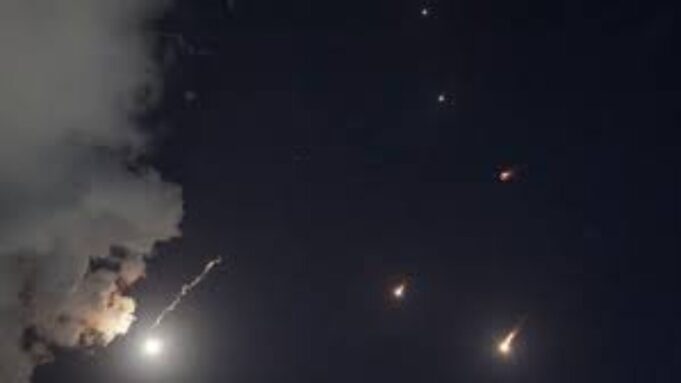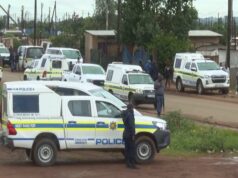Iran, on Tuesday, October 1, 2024, fired a salvo of ballistic missiles at Israel in retaliation for Israel’s campaign against Tehran’s Hezbollah allies in Lebanon.
Alarms sounded across Israel and explosions could be heard in Jerusalem and the Jordan River valley after Israelis piled into bomb shelters.
Israeli army radio said about 200 missiles had been launched into Israel from Iran. Iran’s Revolutionary Guards said Iran had launched tens of missiles at Israel, and that if Israel retaliated Tehran’s response would be “more crushing and ruinous”.
Israel’s military later sounded the all-clear and said Israelis were free to leave their shelters. Military spokesman Daniel Hagari said the military was not aware of any injuries resulting from the Iranian missile attacks.
He described the attack as serious and said it would have consequences.
A senior Iranian official told Reuters the order to launch missiles at Israel had been made by the country’s Supreme Leader Ayatollah Ali Khamenei. Khamenei remains in a secure location, the senior official added.
Journalists saw missiles intercepted in the airspace of neighbouring Jordan.
Oil prices shot up five per cent on the news of the Iranian missile strikes, which raise the prospect of a wider war between the two arch enemies.
A previous round of Iranian missiles fired at Israel in April – the first ever – were shot down with the help of the U.S. military and other allies. Israel responded at the time with airstrikes in Iran, but wider escalation was averted.
Hezbollah: We’re ready for Israeli land invasion in Lebanon
Iran has vowed to retaliate following Israeli strikes that killed the top leadership of its ally Hezbollah in Lebanon, including that group’s leader Hassan Nasrallah, a towering figure in Iran’s network of fighters across the region.
Israel said its troops had launched ground raids into Lebanon, though it described the forays as limited.
In Washington, U.S. President Joe Biden said the United States was prepared to help Israel defend itself from Iranian missile attacks.
“We discussed how the United States is prepared to help Israel defend against these attacks, and protect American personnel in the region,” Biden said on X about a meeting held with Vice President Kamala Harris and the White House national security team earlier in the day.
U.N. Secretary-General Antonio Guterres, speaking after Iran fired its salvo of missiles at Israel, condemned what he called “escalation after escalation”, saying: “This must stop. We absolutely need a ceasefire.”
Though so far characterised by Israel as limited, a ground campaign into Lebanon for the first time in 18 years pitting Israeli soldiers against Hezbollah, Iran’s best-armed proxy force in the Middle East, would be a major regional escalation.
More than a thousand Lebanese have been killed and a million have fled their homes in weeks of intense Israeli airstrikes.
In the latest announced killing of a senior Hezbollah figure, Israel said on Tuesday it had assassinated a commander named Muhammad Jaafar Qasir, describing him as in charge of weapons transfers from Iran and its affiliates.
- Elumelu’s Heirs Energies clinches $750m Afreximbank funding to boost growth - December 21, 2025
- EPL: Rogers’ stunning double downs Man United at Villa Park - December 21, 2025
- Bandits release remaining abducted Niger Catholic school students, teachers - December 21, 2025










